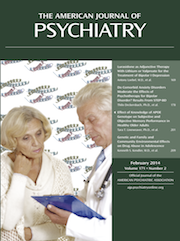Triumphs of Experience: The Men of the Harvard Grant Study
The rapid aging of the society is a topic of growing interest. Two years ago, the first baby boomer turned 65, and some 8,000 turn 65 in the United States every single day. The fastest growing segment of the total population is that of people 80 and over; this group will more than triple by 2050 to over 19 million. Such an important cohort clearly merits a closer look. Yet, relatively little research has focused on the oldest old.
Hence, the usefulness of Dr. George Vaillant’s new book on the Harvard Study of Adult Development, the longest longitudinal study of human development. Initiated in 1938, the study has followed for more than 70 years over 200 Harvard graduates who were regularly assessed by questionnaires and personal interviews and through information obtained from their physicians. Vaillant, the director of the study, has published a number of papers and several books on this research, but the present book offers, for the first time, fascinating insights into the lives of the study participants into their 80s and 90s.
The book, with 457 pages, including the appendices and bibliography, is divided into 11 chapters. The first three chapters explain how longitudinal studies work, describe the study sample, and tell a captivating history of the Grant Study. The next chapter seeks to explain how childhood and adolescence affect old age, concluding that while a loving childhood is a lifelong source of strength, it is possible to recover from a bleak early life experience. The story develops further in the subsequent chapter, as Vaillant analyzes maturity and its link to successful aging. The following chapter is devoted to emotional intimacy, marriage, and mental health. Then the author deciphers factors that might account for extraordinary longevity and predict healthy aging. The next chapter examines involuntary coping strategies and suggests that maturity of defenses is a predictor of mental health in older age and future mental health. The subsequent chapter analyzes alcohol abuse and its destructive effects on individual development, interpersonal relationships (including marriages), and well-being in later life. The following chapter offers a plethora of surprising study outcomes, such as the extraordinary association between the older age at death of maternal grandmothers and better mental health of their grandsons. Finally, the author sums up the findings and recommends topics that might be of interest for future research. The appendices offer a useful collection of interview schedules and assessment scales.
The scientific concepts presented in beautiful prose are craftily blended with narrative examples and personal stories. Vaillant’s book is not only a persuasive case for longitudinal methods of research, illustrated with anecdotes and data support, but also an extensive report on all aspects of life that might lead to successful aging process.
Of course, the Harvard Study of Adult Development also has some limitations, for instance, it is limited to men, many of them highly privileged, well educated, and wealthy members of society. Vaillant tries to offset this disadvantage by quoting findings derived from other longitudinally followed cohorts of inner city Boston men (the Glueck Study of Juvenile Delinquency) and well-educated women (the Terman Study of the gifted female cohort).
While the list of interesting findings reported in this book is too long to encompass in a short review, the main lessons challenge the traditional notions about old age. Contrary to popular beliefs, character and life paths are never set in stone in adolescence or midlife. According to Vaillant’s data, people continue to develop, grow, and evolve throughout their entire lifespan. In fact, life may become more fulfilling and the most extraordinary changes may happen in older age. The author also suggests that antecedents of successful aging are happy relationships, as well as mental and physical health. The good news is that, as the book highlights, our successful aging is in our hands and is not an inevitable outcome of hereditary traits. It is never too late to start on the path to fulfillment, well-being, and happy relationships.
Triumphs of Experience deserves a place on the shelves not only of psychiatrists, psychologists, and other professionals, but also of lay care providers who strive to better understand their aging loved ones, and even themselves. With a scientist’s eye for details, a therapist’s compassion, and a raconteur’s ability to draw readers into stories of his subjects, Vaillant has written a brilliant page-turner for which we all should be grateful.



